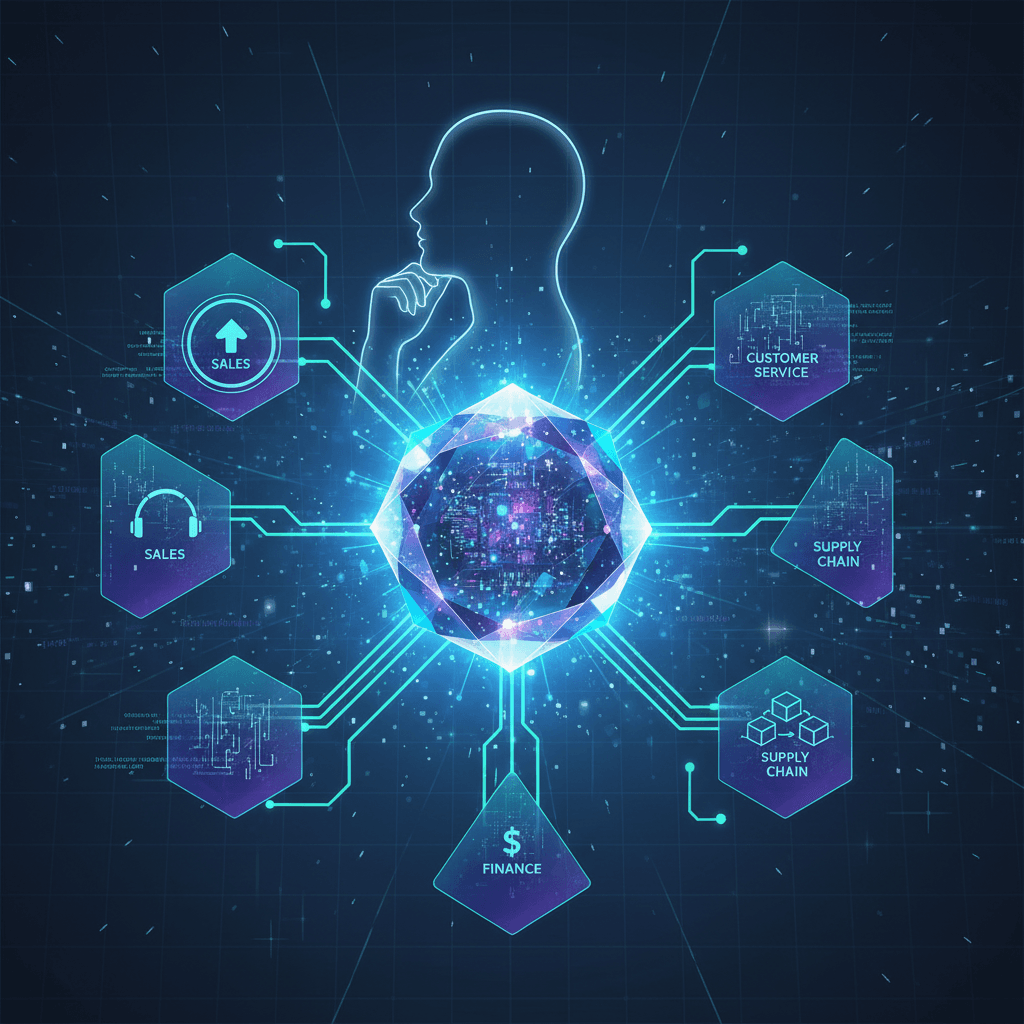Microsoft Unleashes Autonomous AI Agents, Automating Entire Business Workflows
Microsoft 365 Copilot’s new autonomous agents move beyond assistance, independently managing workflows and transforming employees into "agent bosses."
November 1, 2025

Microsoft is fundamentally escalating the role of artificial intelligence in the workplace by embedding autonomous agents into its Microsoft 365 Copilot ecosystem. This strategic evolution moves beyond simple AI-powered assistance to deploy digital agents capable of independently managing and executing complex, multi-step tasks across business applications. The initiative, centered around the customization capabilities of Copilot Studio, promises to redefine productivity by automating entire workflows, a significant leap from the single-task assistance that has characterized AI assistants to date. These agents are designed to act on behalf of individuals or teams, orchestrating processes in areas like sales, customer service, and supply chain management, signaling a major shift in how knowledge work is performed.[1][2][3]
The core distinction of these new AI agents lies in their autonomy. Unlike their predecessor copilots, which require step-by-step prompting from a user, these agents are engineered to understand a goal, devise a plan, and execute a series of actions across various applications to achieve it.[1][4] For example, a sales qualification agent can independently research leads, prioritize opportunities based on value, and even automate personalized email outreach without constant human intervention.[2][3] This functionality is powered by connecting agents to a company's data through systems like Microsoft 365 Graph and Dataverse, giving them the necessary context to perform their duties.[2][4] Microsoft is facilitating their creation through Copilot Studio, a low-code platform that allows businesses to build, test, and deploy custom agents tailored to their specific operational needs.[4][5] In addition to custom builds, the company is rolling out ten pre-built autonomous agents for its Dynamics 365 platform, targeting high-impact areas such as finance, sales, and customer service.[2][3]
The introduction of autonomous agents is part of a broader, transformative vision Microsoft has for the future of work. The company envisions a workplace where every employee becomes an "agent boss," managing a team of specialized AI agents to amplify their productivity and strategic impact.[6][7][8][9][10] This model reframes the human role from a doer of tasks to an orchestrator of a digital workforce.[8] According to Microsoft's research, a significant majority of business leaders expect AI agents to help close the "capacity gap"—the chasm between what teams are asked to do and the time and energy they have to do it.[7][9] Early adopters are already reporting substantial returns on investment. For instance, the UK retailer Pets at Home developed an agent to analyze profit loss, projecting millions in annual savings, while McKinsey & Company created an agent that reduced client onboarding time by 90%.[3] These initial successes underscore the immense potential for agents to drive efficiency and allow human employees to focus on higher-value strategic work.[3]
However, the advance of autonomous AI agents is not without significant challenges and intense industry competition. The increasing autonomy of these systems raises critical ethical questions surrounding accountability, bias, and privacy.[11][12][13] Determining responsibility when an agent makes an error, ensuring that agents trained on historical data do not perpetuate existing biases, and protecting sensitive personal and corporate information are paramount concerns that require robust governance and transparent design.[11][13] Microsoft has stated that its agents are built with security and privacy as core commitments, providing IT administrators with governance controls through Copilot Studio.[2][3] In the competitive arena, Microsoft's move is a direct response to rivals like Salesforce, which recently launched its own "Agentforce" platform.[14][15][16] This intense competition among tech giants like Microsoft, Salesforce, Google, and SAP is accelerating the development of agent-native enterprise software, pushing the entire industry toward a future where autonomous systems are central to business operations.[17]
In conclusion, Microsoft's integration of autonomous AI agents into its 365 Copilot platform represents a pivotal moment in the evolution of workplace technology. By empowering AI to move from assisting with tasks to autonomously managing entire business processes, the company is setting the stage for a dramatic reimagining of productivity and the very structure of work. The vision of a human "agent boss" overseeing a team of digital colleagues points to a future where human expertise is augmented, not replaced, allowing people to focus on creativity, strategy, and critical decision-making. While the path forward involves navigating complex ethical considerations and a fiercely competitive market, the potential for these autonomous agents to unlock unprecedented levels of efficiency and innovation positions them as a cornerstone of the next generation of enterprise software.
Sources
[1]
[4]
[6]
[7]
[9]
[10]
[11]
[12]
[13]
[14]
[15]
[17]